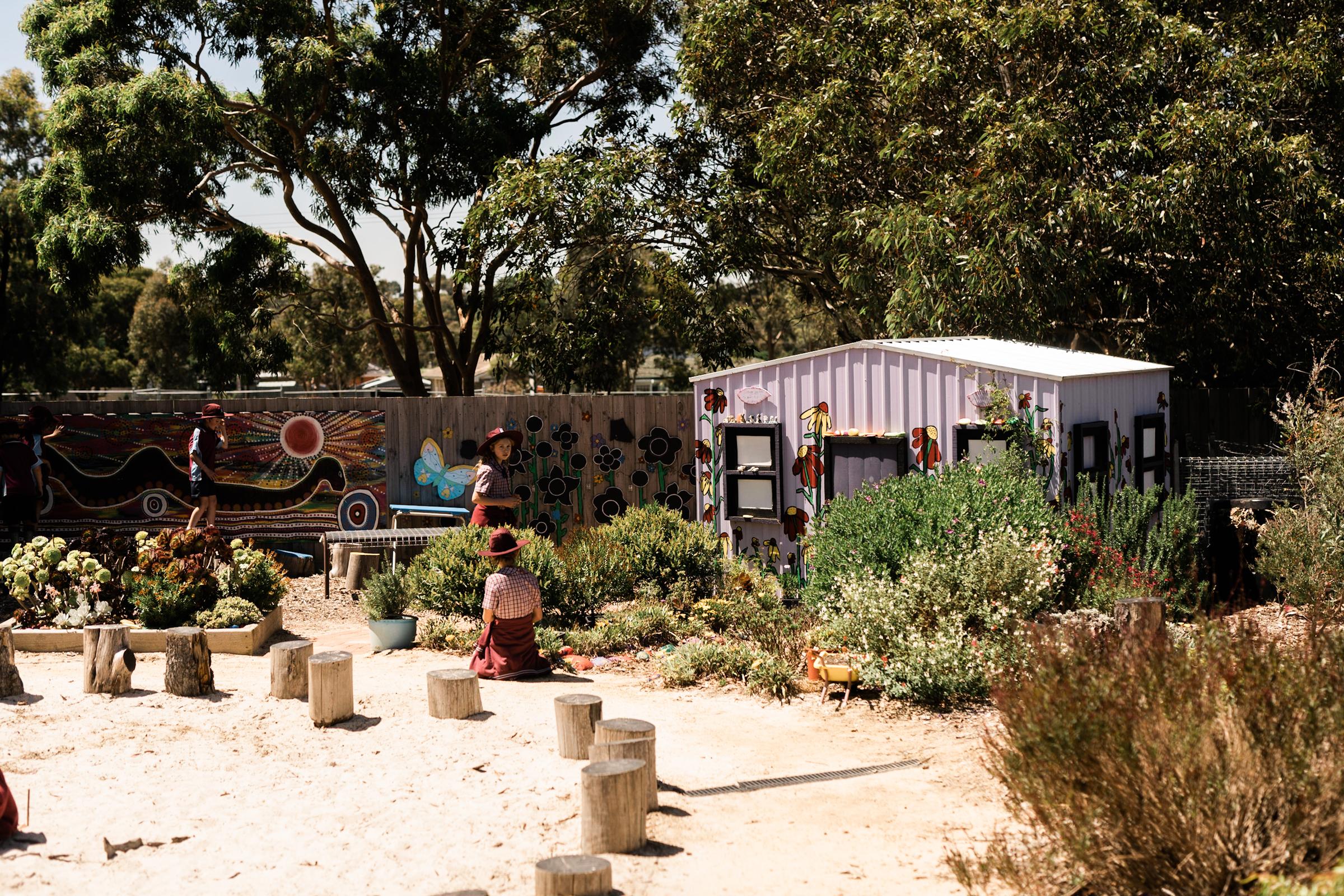
Wellbeing News
Welcome Back!
It is so exciting to have all the children and staff back at school this week. No doubt you would have already caught up with family and friends over the past week. For us, having everyone back on sight is like a big family reunion. For some children, I have no doubt that the noise and business of the playground may be a bit daunting and overwhelming. This is quite a natural response when we have been used to living such a confined life. Please reassure your children that these feelings are OK, that many others are also feeling the same and that such feelings will pass. Remember, to help your child to focus on the positives of school and praise them for being brave, for handling a situation responsibly (this may include getting a teacher to help them on the yard) and for showing respect to all in our school community.
Included in this newsletter is an article by Michael Gross which describes the art of showing appreciation to our children. This is particularly helpful when you have a child that demands your attention. The way we react as parents can either encourage or discourage unwanted behaviour. Our focus should be on the process and effort rather than the end result.
Positive Behaviour for Learning
With the return of students a strong focus throughout the school is the value of Respect. Teachers are speaking with children in how they greet and answer teachers and peers. Staff are reminding students of the tone they are using and to speak in a ‘friendly’ manner. Our younger students are learning to greet each other and staff with a “Good morning, How are you?” Our older students are being reminded of the way they reply to each other. Rather than “huh?”, “What?” and “Yeah?”students are asked to answer with “Yes”and “Pardon.” We all notice and appreciate a child who speaks with courtesy and respect.
Warning for parents: Don’t let your kids play Squid Game
Facebook group Safe On Social Media has shared a warning for parents to keep an eye on what children are watching online – especially with the risk of them copying the games played when school returns to face-to-face learning in NSW.
According to the post, several schools had expressed their concerns over Squid Game, and children possibly mimicking some of the violent behaviour seen on the show in the playground.
“Parents should know that the level of violence is highly intense in Squid Game, and it is not suitable for young teens and primary school-age children,” the post reads.
Squid Game is not for children
Thanks to the heavy violence and adult themes, the show is only recommended for an adult audience, but many curious primary school-aged children are managing to catch snippets.
“Sensitive or younger viewers should avoid watching Squid Game on Netflix,” the post warns.
“Even though adults have overwhelmingly positive reviews about this series, there is a lot of torture and murder that seem to be celebrated,” the Facebook post says.
“The amount of killing is horrific, and the methods are awful.
“Characters are killed and tortured for the sadistic pleasure of a game master. There is sex; there are threats of sexual violence, women assaulted. It also includes reference to the highs one gets from gambling; winning or coming into an enormous amount of money is the main focus of the squid game.”
To read the full article go to: https://www.kidspot.com.au/lifestyle/entertainment/experts-warn-of-the-dangers-of-children-playing-squid-game-when-schools-return-to-normal/news-story/b8cd6291b6a904ae95192df4983eda5a
Please contact the Wellbeing Team if you have any concerns regarding your child.
Monique McIntyre mmcintyre@sasunbury.catholic.edu.au
Kristie Browning kbrowning@sasunbury.catholic.edu.au
Sue Sexton sues@sasunbury.catholic.edu.au
Appreciation – a parenting skill for the ages
by Michael Grose
Do you have a child who craves attention? Does their attention-seeking at times deflate and overwhelm you? If so, you are not alone. Attention-seeking is perhaps the most common misbehaviour in families.
“Look at me, Mum” and its many variations become like a nervous tic driving parents to distraction. It’s good to give kids your undivided attention but there are limits to how much attention you can give. Unfortunately, attention-seeking becomes a pattern of behaviour that’s hard to break.
My first parenting mentor Prof. Maurice Balson, author of Becoming Better Parents, believed that children who constantly seek attention are generally discouraged. “I am not good enough” is their belief.
The antidote to discouragement according to Balson, was to increase the amount of encouragement that a child or young person received. Encouragement, literally meaning ‘to give heart or courage’ focuses on the processes of improvement, effort, enjoyment and contribution.
The latter, contribution, is the most potent of these processes. Kids will usually belong to their families in two ways. They are either contributing members, or are known for their poor behaviour. For kids known for poor behaviour, their usual way of operating shows a mindset of “If I’m not appreciated, at least they’ll know I’m around”.
Attention or appreciation? There’s no contest. Appreciation is the genuine deal when it comes to helping kids feel good about themselves.
Why appreciation works
Appreciation is highly motivating. Even adolescents will generally respond to a parent’s appreciative comments, although their faces won’t always not show it.
Appreciation has an old-brain connection. The job of our old brain or survival brain, is to keep us safe. Our safety can only be guaranteed if we are a part of a group, so parent appreciation helps kids feel secure, preventing them from resorting to negative attention-seeking behaviour to feel part of the group.
Appreciation is approval on steroids
Approval says I like what you do. Appreciation means much more. It shows how behaviour impacts on another person on an emotional level, which has a stronger impact.
Showing appreciation is a wonderful way to shape a child’s behaviour in positive ways. “Thanks so much for cleaning your toys away without asking. It makes my life so much easier.” This type of comment will usually generate a dopamine (feel-good chemical) response from a child, which means they are likely to repeat the behaviour to replicate the feeling.
How appreciation works
There are four rules to be mindful of, when you show appreciation:
It must have meaning
Appreciation must be real and related to a specific behaviour for it to be effective.
It should let child know the emotional impact of their behaviour
Either with words (“It makes me feel happy”) or through non-verbals (a smile, a hug or high-five) your child should see that their behaviour has had a positive impact on you.
It should be genuine
You can’t fake sincerity with a child or young person as they are generally adept mood detectives.
It’s best if it has small differences
Showing appreciation is not a one-size fits all behaviour. Appreciation should be shown a way that matches the situation and suits your child. Consider writing a note to show appreciation for something special. Boys often prefer private encouragement rather than public acknowledgement so consider when and where you shower them with encouragement.
Positive side effects
There are plenty of positive side effects to showing appreciation for a behaviour. An appreciative parent comment helps create a healthy, happy family atmosphere. Appreciation can change the mood of the giver and receiver and it’s a behaviour that if adopted by children can be experienced by the next generation. That makes parent appreciation a behaviour for the ages.
Michael Grose
Michael Grose, founder of Parenting Ideas, is one of Australia’s leading parenting educators. He’s an award-winning speaker and the author of 12 books for parents including Spoonfed Generation, and the bestselling Why First Borns Rule the World and Last Borns Want to Change It. Michael is a former teacher with 15 years experience, and has 30 years experience in parenting education. He also holds a Master of Educational Studies from Monash University specialising in parenting education.


